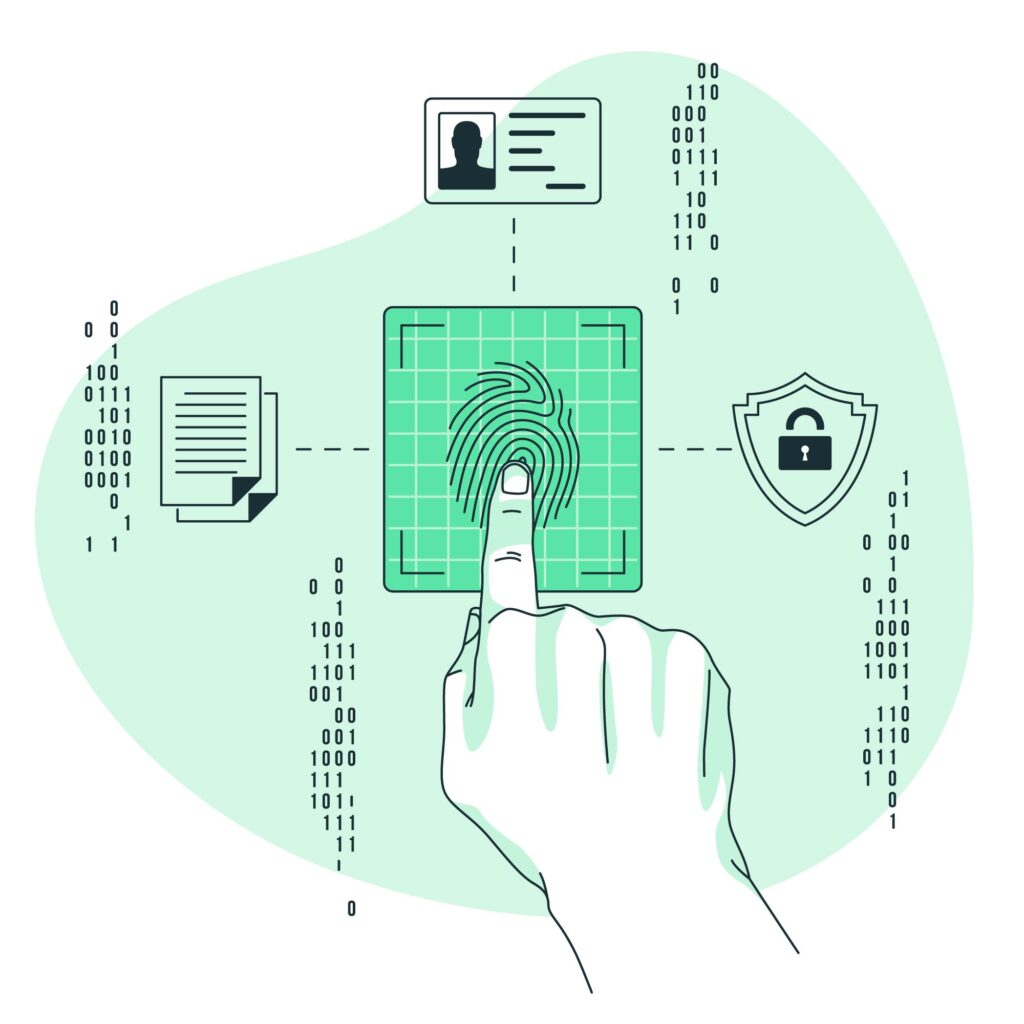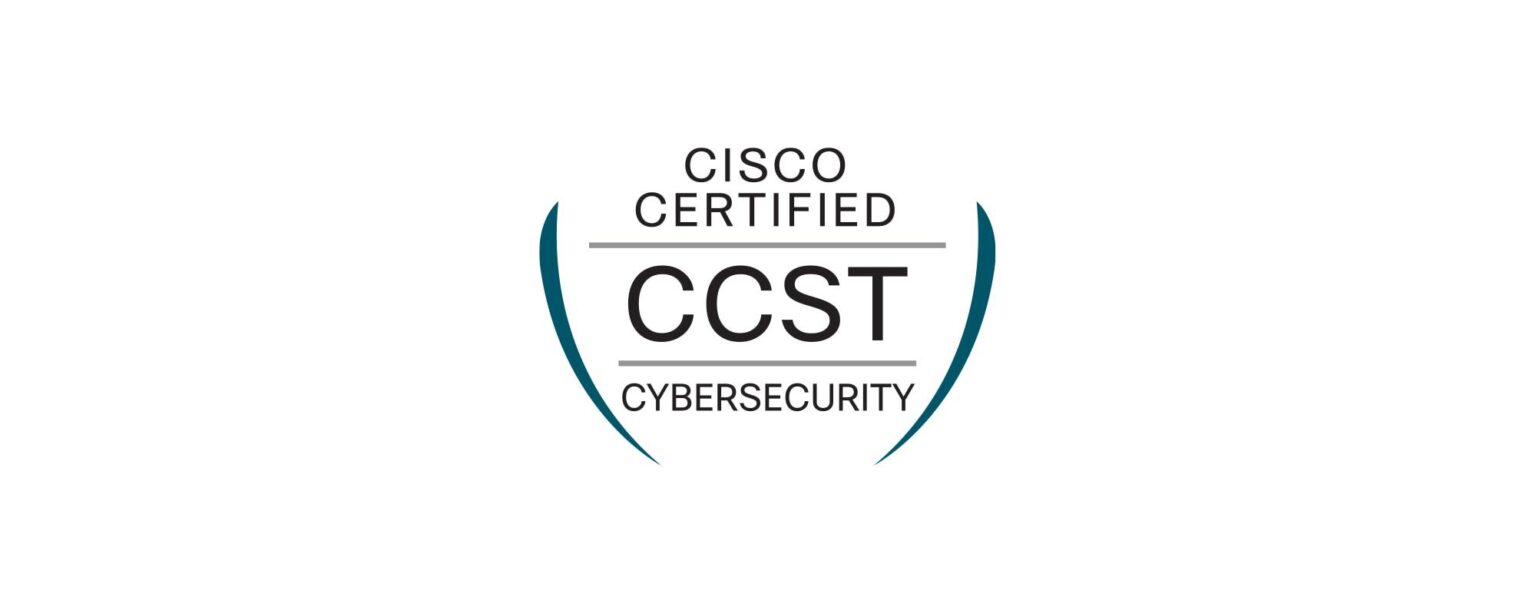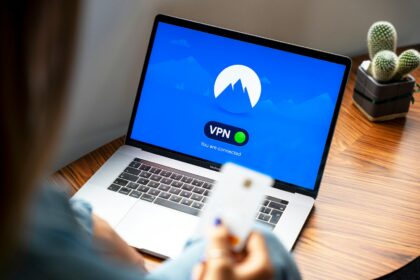The cybersecurity field is booming, with 3.5 million unfilled jobs worldwide. Companies are eager to find skilled professionals. If you’re considering a career in cybersecurity, Cisco certifications could be your key to success.
When I first heard about Cisco certifications, a colleague called them a “VIP pass” to cybersecurity. Initially, I doubted him. But witnessing how these certifications transformed careers, I realized he was spot on.
Why Cisco Cybersecurity Certifications Matter So Much
Let’s look at some numbers. More than half of all cybersecurity jobs require at least one certification. It’s not just a suggestion; it’s a must in today’s job market.
Kevin Brown, a Cybersecurity Analyst with CCNA and Cybersecurity Associate certifications, puts it perfectly: “People always want to know who they’re talking to. They want to know if you’re qualified. Certifications give you instant credibility.”
Another fact that amazed me is that 91% of employers believe IT certifications are a reliable predictor of a successful employee. Think about it. When you walk into a job interview with a Cisco certification, you’re already ahead of 90% of other candidates.
The Money Talk: What These Certifications Can Do for Your Wallet
Let’s talk about the money. Cisco cybersecurity certifications can significantly increase your earning power.
Here’s what you can expect to earn:
- CCNA certification holders: $75,319 to $87,000 annually in the US
- CCNP Security professionals: Around $107,000 per year
- CCIE Security experts: A whopping $138,000 annually
In Switzerland, CCNA professionals average $104,000. This shows the value of having globally recognized skills.
I know a security analyst who started at $58,000 with no certifications. After getting his CCNA and CyberOps Associate, he jumped to $93,888 within 18 months. “The certification didn’t just change my salary,” he told me. “It changed how people saw me at work. Suddenly, I was the go-to person for security questions.”
The Cisco Cybersecurity Certification Ladder
Cisco has built a beautiful progression system. It’s like a video game where you level up your skills step by step.
Entry Level: CCST Cybersecurity ($125)
This is where everyone should start. The Cisco Certified Support Technician (CCST) Cybersecurity certification costs just $125. It’s like buying a cup of fancy coffee every day for a month – except this investment can change your entire career.
The CCST covers basic security principles, network security concepts, and vulnerability assessment. It requires no prerequisites, making it perfect for beginners.
One of my friends, Sarah, was working in retail management. She took the CCST exam and landed an entry-level IT support job with security focus within two months. “I couldn’t believe how fast everything changed,” she said. “One $125 exam opened doors I didn’t even know existed.”
Associate Level: Building Your Foundation
Once you’ve got your feet wet, you have two main paths:
CCNA: The Networking Foundation ($300)
The CCNA isn’t technically a cybersecurity certification, but it’s absolutely essential. You need to understand networks before you can secure them. It’s like learning to drive before becoming a race car driver.
The exam costs $300 and covers:
- Network fundamentals
- Network access and IP connectivity
- IP services and security fundamentals
- Automation and programmability
CyberOps Associate: Your Security Operations Center Entry ($300)
This is where cybersecurity gets real. The CyberOps Associate certification (exam code 200-201 CBROPS) costs $300 and focuses on Security Operations Center (SOC) skills.
You’ll learn how SOC teams detect and respond to:
- Cybercrime attacks
- Cyberespionage attempts
- Insider threats
- Advanced persistent threats
- Regulatory compliance issues
The certification is valid for three years, so you’re not constantly retaking exams. That’s three years of career growth and opportunities.
Professional Level: Serious Money and Responsibilities
CCNP Security: The Enterprise Expert ($700 total)
This level is both costly and thrilling. CCNP Security requires a $400 core exam plus a $300 concentration exam. But the investment pays off quickly.
CCNP Security professionals earn around $107,000 annually. That means the $700 certification cost pays for itself in just a few weeks of salary difference.
CyberOps Professional: The Automation Master
This advanced certification builds on CyberOps Associate knowledge. You’ll master security automation, orchestration, and scripting. Companies are desperately seeking professionals who can automate security responses.
Expert Level: The Elite Tier
CCIE Security: The Ultimate Achievement ($2,000+ total)
This is cybersecurity’s Mount Everest. CCIE Security requires a $400 written exam plus a $1,600-$1,900 hands-on lab exam. The lab exam is eight hours of pure, intense technical challenges.
But here’s the payoff: CCIE Security professionals earn an average of $138,000 annually. Some make significantly more, thanks to their expertise in major tech hubs.
I know one CCIE Security holder who told me: “The lab exam was the hardest thing I’ve ever done professionally. But it opened doors to companies I never thought would consider me. Now I’m a security architect at a Fortune 500 company.”
Study Costs: The Full Investment Picture
The exam fees are just part of your investment. Let’s break down the real costs:
Study Materials:
- Official Cisco courses: $800-$1,000
- Practice exams: $50-$200
- Books and online resources: $100-$300
- Lab equipment or simulators: $200-$500
Training Bundles:
Cisco offers complete packages. For example, the CBROPS E-Learning and Exam Bundle costs $995 (reduced from $1,179). This includes:
- 180-day course access
- Nearly 400 practice questions
- The actual exam voucher ($300 value)
Think of it this way: you might spend $1,500 total to get certified, but you could see a $15,000+ salary increase. That’s a 1000% return on investment.
The Current Market Reality
The numbers are staggering. Cybersecurity job vacancies grew by 350% from 2013 to 2021. While tech companies like Amazon, Meta, and Google are laying off workers, cybersecurity remains a near-zero unemployment field.
Steve Morgan from Cybersecurity Ventures put it perfectly: “While Amazon, Meta, Twitter, Microsoft, Google, and the other tech giants are going through layoffs, our industry has hung out an enormous Help Wanted sign.”
Here’s what’s driving this demand:
- Cloud computing expansion
- Rise of IoT devices (expected to reach 50 billion networked devices)
- Remote work security challenges
- AI-powered cyber attacks
- Regulatory compliance requirements
53% of organizations report having more than 10 cybersecurity positions to fill. These roles account for over 10% of their team’s headcount gap.

Real Career Paths and Opportunities
Let me paint a picture of where these certifications can take you:
Entry Level (CCST): $40,000-$60,000
- Security Technician
- IT Help Desk with security focus
- Junior SOC Analyst
Associate Level (CCNA/CyberOps Associate): $60,000-$90,000
- Network Administrator
- SOC Analyst
- Security Analyst
- Cloud Security Specialist
Professional Level (CCNP/CyberOps Pro): $90,000-$130,000
- Senior Security Engineer
- Security Architect
- Incident Response Manager
- Threat Hunter
Expert Level (CCIE): $130,000-$180,000+
- Principal Security Architect
- CISO (Chief Information Security Officer)
- Security Consulting Partner
- Cybersecurity Practice Leader
The Investment Timeline
Most people can earn their first Cisco certification within 3-6 months of dedicated study. Here’s a realistic timeline:
Month 1-2: Study fundamentals, take practice exams
Month 3: Intensive review and hands-on practice
Month 4: Schedule and take the exam
Month 5-6: Start applying for new positions
One success story I love: Mike was a help desk technician earning $45,000. He studied for his CCNA evenings and weekends for four months. Six months after getting certified, he landed a network security analyst role at $78,000. That’s a $33,000 increase in less than a year.
Smart Preparation Strategies
Start with CCST or CCNA: Don’t jump to professional level without the foundation.
Use Official Cisco Materials: Cisco’s own training has the highest pass rates.
Join Study Groups: Online communities like r/ccna and TechExams provide incredible support.
Get Hands-On Experience: Use Cisco’s Packet Tracer simulator or build your own lab.
Take Practice Exams: The 200-201 CBROPS exam review contains nearly 400 practice questions.
The Future is Bright
Looking ahead, the cybersecurity field shows no signs of slowing down. 96% of organizations plan to upgrade or restructure their IT infrastructure within the next two years.
Budget increases are massive:
- 90% of companies increased cybersecurity budgets in the past 12-24 months
- 93% saw increases of at least 10%
- Nearly 30% experienced increases of 30% or more
As one cybersecurity manager told me: “We’re not just hiring to fill positions anymore. We’re hiring to build entirely new security teams. The demand is unprecedented.”
Making Your Decision
If you’re on the fence, consider this: cybersecurity is one of the few fields where a single certification can literally change your life.
The investment is relatively small – less than a college degree. The timeline is short – months, not years. And the demand is real – 3.5 million open positions aren’t going away anytime soon.
Start with the CCST Cybersecurity certification at $125. It’s less than most people spend on dinner and entertainment in a weekend. But it could be the beginning of a six-figure career.
The cybersecurity world needs you. Companies are willing to pay well for certified professionals. The only question is: are you ready to take the first step?
Remember, every cybersecurity expert started with their first certification. Your journey begins with a single exam. The time to start is now.
























